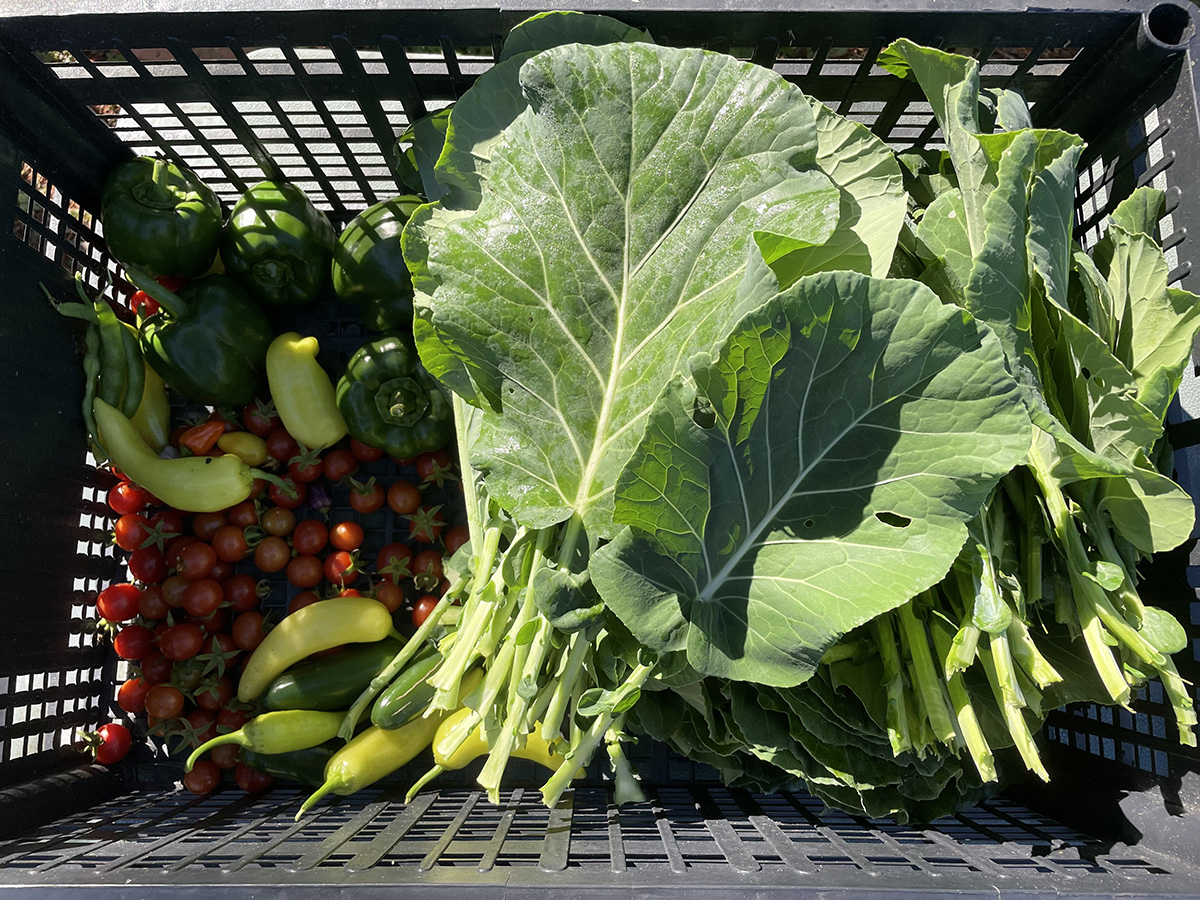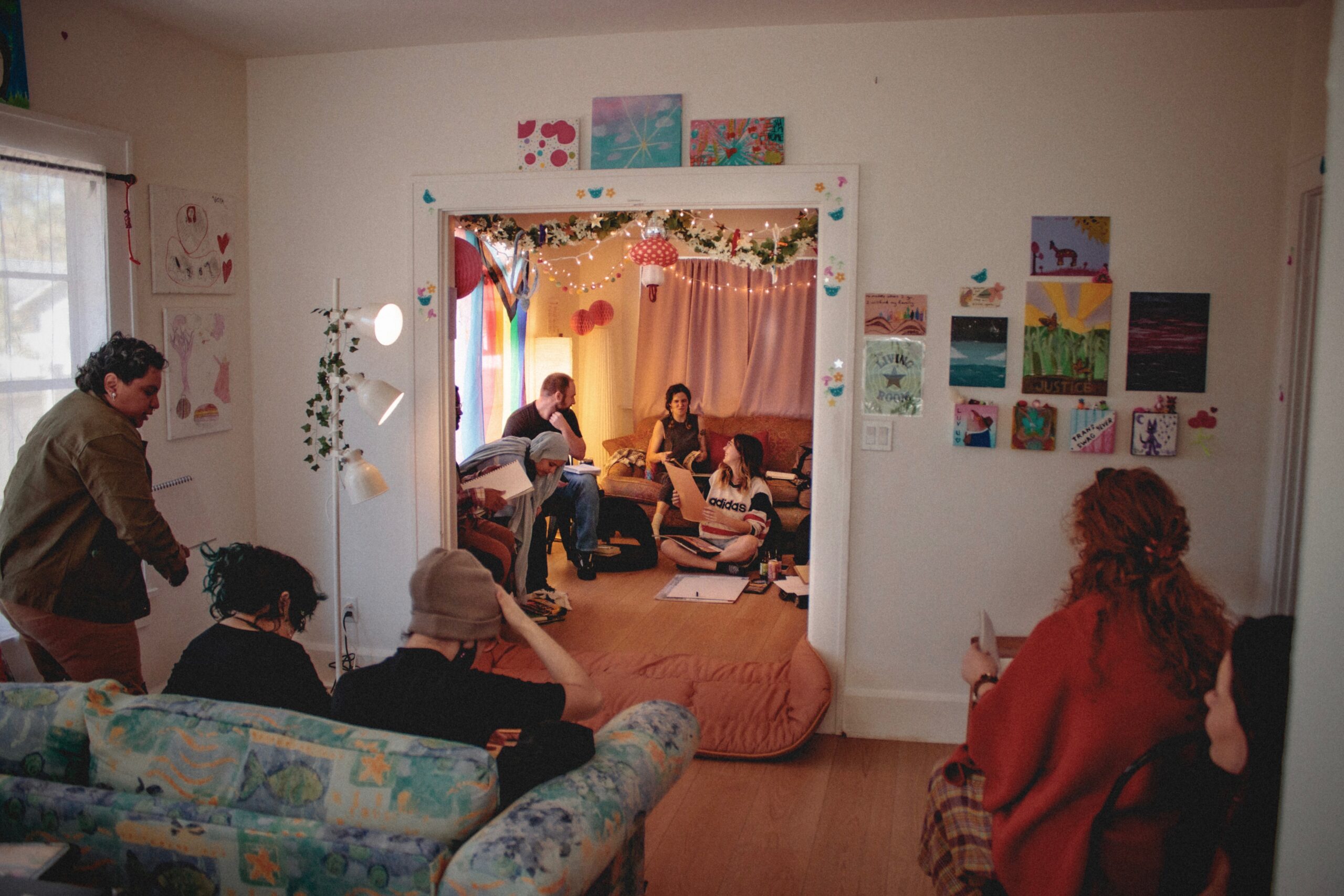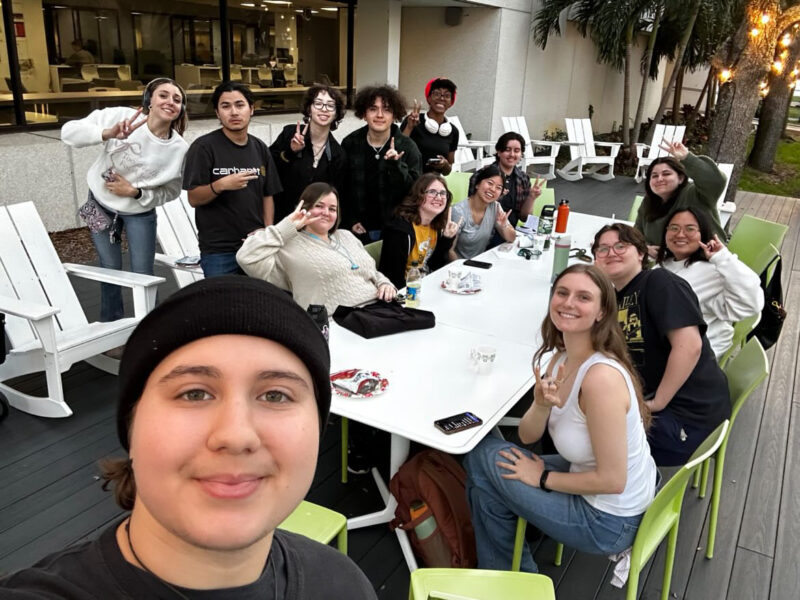The USF Honors College Community Garden offers students a place to get service hours while growing food for those in need.
Courtesy of Julia Elaine Lorelli | The Crow’s Nest
By Julia Elaine Lorelli
Amid COVID-19 isolation, Megan Stowe set out to build community through food, thus creating the USF Honors College Community Garden.
Stowe is the Honors LLC program director and an academic advisor, as well as the founder of Rooted in Place: JGHC Community Garden Service-Learning Course.
The community service and zero-credit hour course was created in the fall 2021 semester by the Judy Genshaft Honors College.
The course is designed to grow nutrient rich ingredients for food-insecure students and staff, teach about food sovereignty and build sustainable communities in an urban environment.
With the help of local sources such as the USF Botanical Gardens, USF Urban Food Sovereignty group, Department of Religious Studies and WellFed Community, the garden was given life.
“This learning experience is more than just gardening, it is also about understanding science through spirituality,” Stowe said.
The course is currently led by president and instructor of the USF Community Garden, Kobe Phillips.
“At first, I was drawn to the course to reconnect with nature. I think the physical aspects of the garden, like running my hands through the dirt, the sweat on a hot day and the community of people, all attracted me toward the project,” Phillips said. “Once I realized that the garden allowed me to have creative freedom and reconnect with lost memories, I felt an emotional attachment.”
From reading “Epiphany in the beans” from Braiding Sweet Grass by Robin Wall Kimmerer, to doing grounding exercises such as digging into the soil by hand, the course is full of growth.
“For me, hearing the buzzing tune of the apiary and smelling the crisp dew of the dirt made me fall in love with our garden, and I wanted to share that with other students as well,” Phillips said.
Students put a lot of time and effort into cultivating their crops. As of now, the crops are planted as sprouts, but the garden intends to move to seeds as it continues to expand.
There is a large variety of vegetables and herbs in the garden, such as spinach, tomatoes, cabbages, kale, peppers, turnips, carrots and more. The harvests from the community garden are given to the USF Bulls Pantry.
The students are directed to keep reflection journals to document learning and assist in the building and expansion of the course. This opportunity leaves room for the community to build, connect and thrive together through food.
By studying the eco impact, food security and challenges of agriculture, USF is not only bringing awareness to the minds of students, but also the surrounding community.



